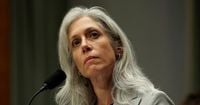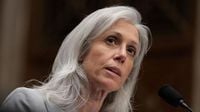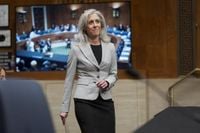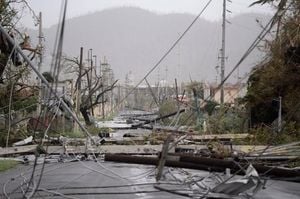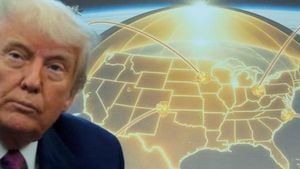The U.S. Centers for Disease Control and Prevention (CDC) has found itself at the center of a leadership crisis after the abrupt ousting of its director, Dr. Susan Monarez, less than a month into her tenure. The news, first reported by The Washington Post and quickly confirmed by multiple outlets including TIME, CBS News, and Reuters, has left the nation’s premier public health agency leaderless at a time of mounting internal and external pressures.
Dr. Monarez’s removal was confirmed on August 27, 2025, in a terse statement from the Department of Health and Human Services (HHS) posted on X. The post read, “Susan Monarez is no longer director of the Centers for Disease Control and Prevention. We thank her for her dedicated service to the American people.” HHS Secretary Robert F. Kennedy Jr. added that he “has full confidence in his team at the CDC who will continue to be vigilant in protecting Americans against infectious diseases at home and abroad.”
The reasons behind Monarez’s departure remain shrouded in mystery. As of press time, neither the CDC nor HHS had provided a public explanation, and repeated requests for comment from major news organizations went unanswered. The lack of transparency has only fueled speculation and concern, especially given the tumultuous backdrop against which this leadership shakeup occurred.
Monarez’s tenure was historic in several respects. Sworn in on July 31, 2025, after Senate confirmation just two days earlier, she became the first CDC director in history to be confirmed by the upper chamber and the only non-physician to lead the agency since the 1950s. Her appointment followed the withdrawal of President Donald Trump’s initial nominee, Dr. David Weldon, a former Republican congressman whose skepticism about vaccines had drawn private concerns among White House officials, according to CNN and Reuters. Monarez, who holds a Ph.D. in microbiology and immunology, had previously served as the agency’s acting director and as deputy director for the Advanced Research Projects Agency for Health (ARPA-H).
When Monarez was sworn in, Secretary Kennedy praised her as “a public health expert with unimpeachable scientific credentials,” expressing confidence that she would “restore the CDC's role as the most trusted authority in public health and to strengthen our nation's readiness to confront infectious diseases and biosecurity threats.” Monarez herself, in a statement released at the time, called it “a great honor to join Secretary Kennedy and his HHS leadership team,” adding, “Together we will strengthen and modernize the nation’s public health preparedness and response through science and innovation. We will work every day at CDC to Make America Healthy Again.”
Yet, Monarez’s time at the helm was marked by unprecedented challenges. Morale at the CDC was already battered following deep staff cuts in the spring of 2025. The situation worsened dramatically on August 8, when a gunman opened fire on the agency’s Atlanta headquarters, shattering windows across six buildings and killing DeKalb County police officer David Rose. The attack left the CDC campus scarred and staff deeply shaken. In the days that followed, some 600 employees received termination notices, further eroding confidence and stability within the agency, according to CNN.
In an attempt to address the turmoil, Monarez held a virtual meeting with CDC staff, urging them to focus on rebuilding trust—both within the agency and with the public. “We know that misinformation can be dangerous,” she said, as quoted by NBC News. “Not only to health, but to those that trust us and those we want to trust. We need to rebuild the trust together.” However, Monarez canceled a subsequent all-staff meeting that had been scheduled for August 25, citing the need to attend an HHS meeting in Washington, D.C. This cancellation, along with her sudden firing, left many employees feeling adrift.
Monarez’s ousting was not an isolated event. At least four other top CDC officials submitted their resignations around the same time, including Dr. Debra Houry, the CDC’s chief medical officer; Dr. Demetre Daskalakis, director of the National Center for Immunization and Respiratory Diseases; Dr. Daniel Jernigan, director of the National Center for Emerging and Zoonotic Infectious Diseases; and Dr. Jen Layden, director of the Office of Public Health Data, Surveillance and Technology. Letters reviewed by NBC News confirmed these resignations, adding to the sense of upheaval at the agency.
The CDC has not been immune to political turbulence in recent years, but the rapid turnover at the top under the Trump administration has been especially notable. Monarez’s firing follows a pattern: earlier in August, Billy Long was removed as chief of the Internal Revenue Service just two months after his confirmation, and high-profile departures such as Anthony Scaramucci’s ten-day stint as White House Communications Director and Mike Flynn’s 24-day tenure as National Security Advisor during Trump’s first term are still fresh in Washington’s memory.
Observers have pointed to the impact of such instability on the CDC’s ability to fulfill its mission. Former CDC Principal Deputy Director Dr. Nirav Shah did not mince words, telling CNN that Monarez’s ouster “is another example of the chaotic leadership we’ve seen under Secretary Kennedy, and in times of increasing public health threats, stable leadership matters.” He added, “The instability we’re seeing at CDC will not help making Americans healthy again.”
The leadership vacuum comes as Secretary Kennedy has taken a highly active role in shaping vaccine policy. According to Reuters, Kennedy withdrew a federal recommendation for COVID-19 shots for pregnant women and healthy children in May, and in June, he dismissed all members of the CDC’s expert vaccine advisory panel, replacing them with hand-picked advisers, some of whom have been described as anti-vaccine activists. On the very day Monarez’s departure was announced, Kennedy also unveiled changes to COVID vaccine eligibility, underscoring the ongoing policy shifts at HHS and the CDC.
For Monarez, the experience was a brief and turbulent chapter in a long public service career that has spanned both Republican and Democratic administrations. Before joining the CDC, she held senior roles at ARPA-H, the Health Resources and Services Administration, the Department of Homeland Security, and the Biomedical Advanced Research and Development Authority.
As the CDC faces the future without a permanent director, questions abound about the agency’s direction, its ability to respond to public health emergencies, and the impact of political interference on its scientific mission. For now, the CDC’s remaining leadership and staff are left to navigate a landscape marked by uncertainty, loss, and the daunting task of restoring trust in one of America’s most vital public institutions.
